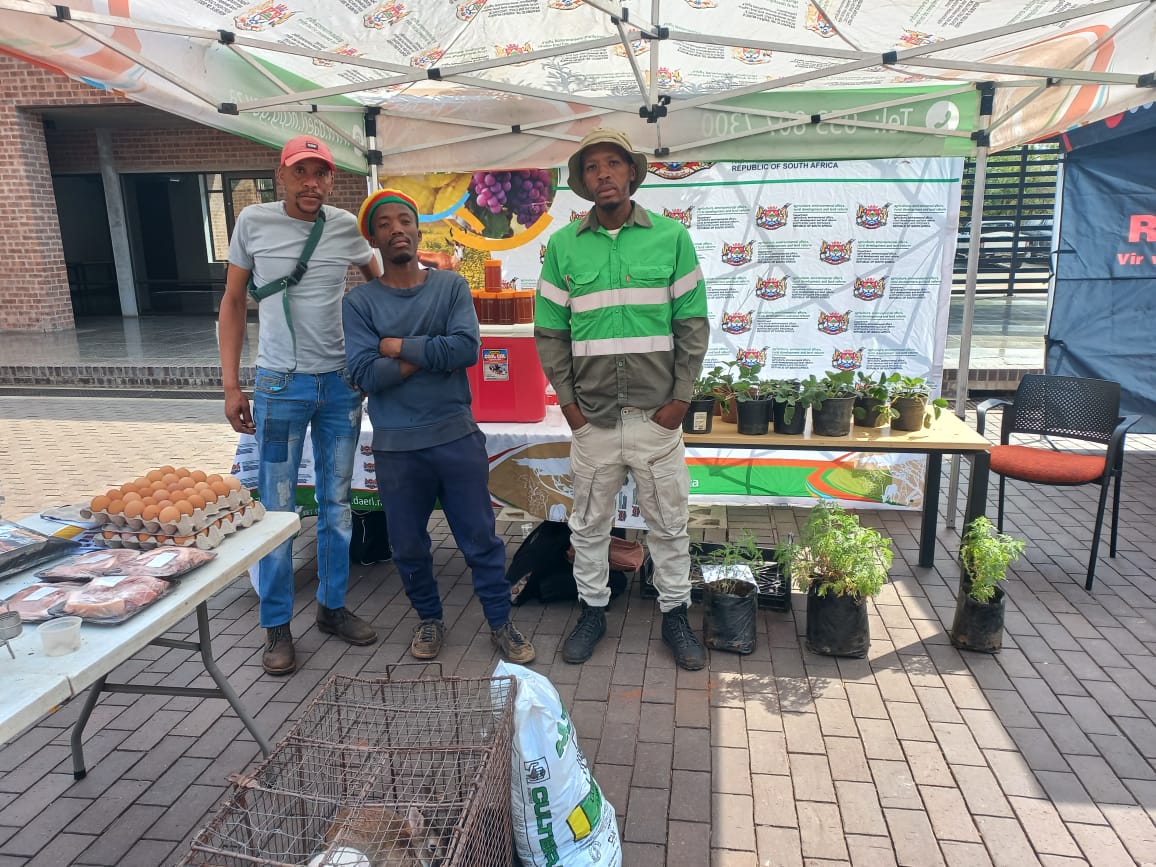
Visit the photo gallery to view more pictures.
The Department in partnership with the Agricultural Research Council (ARC) and various stakeholders hosted a successful Farmers’ Day in Kimberley, Frances Baard District, on 05 September 2025 at Sol Plaatje University.
Under the theme “Spring into Action: Healthy Herds, Better Yields”, the event brought together small-scale and emerging farmers, researchers, industry leaders, and students to share vital knowledge aimed at strengthening livestock farming and improving productivity. The day’s programme began with exhibitions from ARC, DAERL, and sponsors, followed by an opening prayer led by Ms. Paulina Tjiposa. Prof. M. Ntwaeaborwa from Sol Plaatje University officially welcomed attendees, while Ms. Tsholofelo Qwelane outlined the purpose of the day, equipping farmers with practical knowledge and connecting them with key stakeholders.
A series of informative presentations followed, covering topics such as:
• Animal Health – Mr. Frans Seolwane (ARC) shared insights on disease prevention and herd management.
• Red Meat Industry – Ms. Y. Botha (RPO) highlighted opportunities and challenges in the sector.
• Poisonous Plants – Dr. Zanele Phoku (ARC) educated farmers on local plants harmful to livestock.
• Feedlotting in South Africa – Dr. Klaas Jan Leeuw (ARC) explained methods to improve beef production.
• Animal Nutrition – Mr. Thomas Langa (ARC) emphasized balanced feeding for optimal growth.
• Stock Theft Mitigation – Ms. Dzunisani Nonyane (ARC) presented on using DNA technology to combat theft.
The event allowed farmers to directly engage with experts during an interactive Question and Answer session, ensuring that practical solutions could be applied to everyday farming challenges. In his vote of thanks, Mr. I. Lekgetho commended the collaboration between government, academia, and industry partners in empowering farmers. The programme was officially closed by Ms. Pulane Sebodisa.
Overall, the Frances Baard Farmers’ Day served as a valuable platform to empower local farmers, encourage innovation in livestock farming, and build sustainable relationships across the agricultural value chain.
